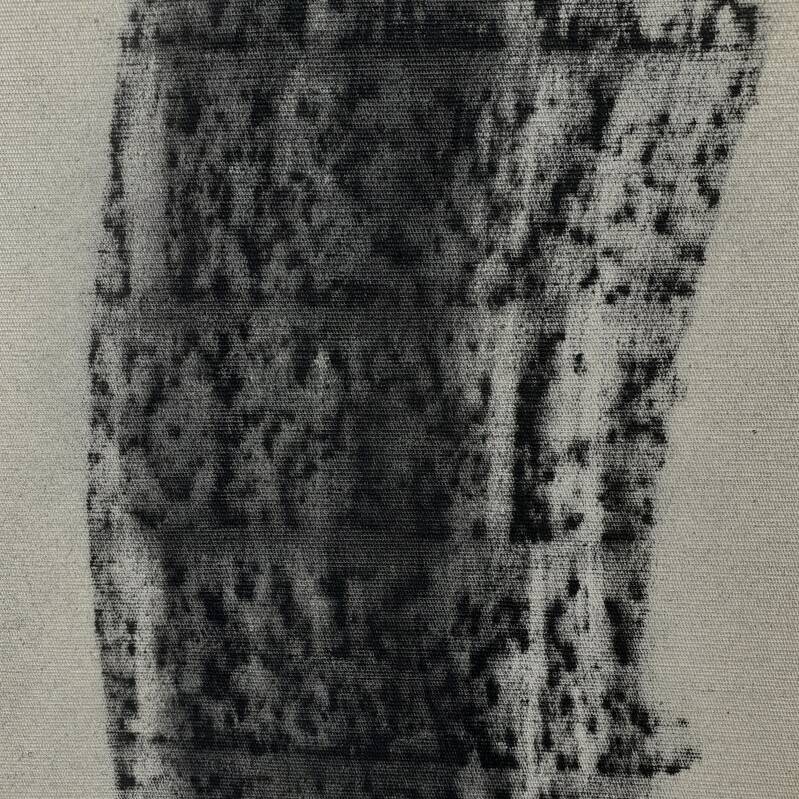Black Bile
Benjamin Rostance
Benjamin Rostance is a trauma-informed, working-class artist from Nottingham, U.K. His practice explores mental health, trauma, and recovery, drawing from his lived experience as both a survivor of childhood trauma and an adult navigating healing.
In their art, Rostance examines the dynamic between the inner child—seeking acceptance and understanding—and the adult in recovery. His art reflects his upbringing as the youngest in a large, working-class family. Rostance's wider practice considers the effects of trauma on the body, both internally and externally.
Beyond his independent practice, Benjamin has worked on a BAFTA-nominated film, collaborated professionally with institutions such as the National Trust, University of Nottingham and Nottingham Trent University. Rostance was selected for New Contemporaries 2021 and has exhibited across the U.K, including at the South London Gallery, Firstsite Colchester, Backlit Gallery, and New Art Exchange, with performances at DRIP Liverpool and SLAP Nottingham.
Currently, Rostance is in training as an art therapist at MA level at Derby University, expanding his practice to explore the therapeutic potential of art in recovery and mental health.
Speculum Melancholiae.
“If you have an idea of time why then you are in the same world with them you are part of them but if you lose time the others go on ahead of you and you are left alone hanging in air lost to everything forever.”
— Dalton Trumbo, Johnny Got His Gun

Melancholy. For me, it is grief that penetrates the body and lingers. No matter how much I try to rationalise, and reset the grief and loss I have endured, the thoughts and feelings persist. That is until I found performance.
When I first drew a performative circle, it gave me a place to speak, without words, about surviving childhood abuse. It became a space where I could release something held inside, but with enough distance that the audience didn’t have to carry it themselves. I was exorcising my demons and allowing those who feel some connection with the performative drawings to think about this process of expunging thoughts and feelings in a moment, and how they might reframe such acts to address their own possible imbalance of humour.
Circle Performance X is part of an ongoing process to address my own imbalances, a readiness to seek answers, to find peace, while always acknowledging and documenting the failures and successes. My performative drawings are imbued with love, loss and grief, accompanied by a soundscape that vocalises the very guttural feeling that connects the internal with the external. I am inviting you to walk alongside me on this journey of self-discovery in hopes you can raise questions of your own.
“He could not construct for the child's pleasure the world he'd lost without constructing the loss as well and he thought perhaps the child had known this better than he.”
— Cormac McCarthy, The Road
The installation, made up of a ready-made camper bed and a floral arrangement, centres on the loss of my relationship with my father and the melancholy that surfaces because of this loss.. It also holds moments of warmth, the kind that comes from shared memories, even when they sit alongside pain. The bed stands in for him. It’s floral, foldable, adaptable, something between rest and
function. But it’s never been used. The paint is still fresh, the springs untouched. It’s complete, but static. What is a bed if it never functions as intended? An object? A symbol of something unfulfilled? A promise of support from a time long past, still with us to see but not to rely on?
The flowers adorning the ready-made bed are another layer of my attempt to address my humour imbalance. Beautiful, arranged with care, but already cut. No matter how I place them, the outcome is the same: we, as the audience, can see the flowers are
cut, they have no water and even if they had, the future of the flower is now pre-ordained. We will admire them for as long as we can, knowing that time will not be kind to either the viewer or the flower. A slow dance with an inevitable end. How do we begin to make the most of situations such as this one? Do we look forward, backward, in the present? All these questions are raised in this piece.
This new body of work is my way of attempting to address my own perceived imbalance. It’s also an invitation for us all to look closely, to allow ourselves to recognise the internal and external feelings we have when encountering such themes in our lives. I don’t have the answers to these lifelong questions, but maybe, in sharing, we can look for them together and find a way to address our humour.
Create Your Own Website With Webador